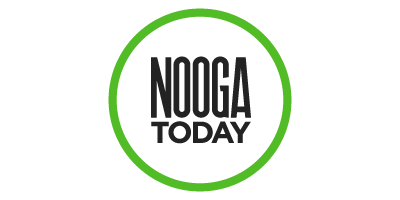Good Friday morning, Chattanooga. Chloé here, and I’m feeling like it’s time for a mental health check.
It’s something Trista and I do weekly, if not daily — we ask how the other is feeling + coping with daily stressors. And, these kinds of check-ins are more important now than ever.
I’ve struggled with social and generalized anxiety disorders my entire life, and guess what my generalized anxiety often surrounds? Diseases! So this is sort of my nightmare come-to-life. I’m thankful for anxiety medication and the many coping habits I’ve developed.
On Thursday, we used a Twitter poll to ask our readers how they are feeling, and — as of Thursday afternoon — 72 percent said they are either “Meh. Hanging in there” or they are “Straight-up struggling” right now. (Cheers to the 25% percent of you who are in a good mental headspace right now.)
Everyone hear this — whether COVID-19 + tornadoes have you especially on edge or you’re managing mental illness on top of all that, you are not alone. If you are experiencing a mental health crisis Tennessee’s hotline is 1-855-274-7471. If you need a referral to substance use disorder treatment or other resources, call or text the TN REDLINE: 1-800-889-9789.
And we’ve gathered resources from Erlanger, BCBST, UTC + the Center for Mindful Living to help ease the stress and manage your mental health.
State fast facts
○ State advocates said COVID-19 is affecting Tennesseans’ mental health, and calls to the state’s Substance Abuse and Mental Health Services Administration hotline are up 800%.
○ In general, 20% of Tennesseeans experience mental illness. That’s 2% higher than the U.S. percentage, according to BCBST.
And in East Tennessee, 26.2% of residents will need mental health treatment within any given year, according to BCBST.
Resources
○ UTC’s Counseling Center has a list of student resources here.
○ Hamilton County’s Helen Ross McNabb Center has a range of resources, including mental health help for adults and children.
○ The Mental Health Association of East Tennessee’s Peer Recovery Call Center provides help — including checking on people after calls.
○ Centerstone on Shallowford Road offers everything from counseling to psychiatric care.
○ The state offers help for people with psychiatric conditions but no insurance. More here.
Managing stress/mental health
Just breathe
○ Stop what you’re doing and just breathe. Practice mindfulness. Here’s why it works, and Chattanooga’s Center for Mindful Living has a list of resources to help you get started.
ProTip: Meditation might help too. I use the free version of a meditation app called Stop, Breathe & Think. Meditation is like mindfulness, but it’s generally a more still practice, as opposed to one you can do throughout the day. Here are some tips from local residents to get started with meditation, and here’s some info from Erlanger about its benefits.
Self-care
○ Self-care is more than a bubble bath and face mask, although those may be good places to start.
○ According to Erlanger, self-care is anything you do to take care of yourself. But sometimes that feels like chores — exercising, setting boundaries, making time for yourself when you feel pressure to help everyone else.
○ Check out Erlanger’s list of ways to practice self-care here.
ProTip: Be gentle with yourselves.





